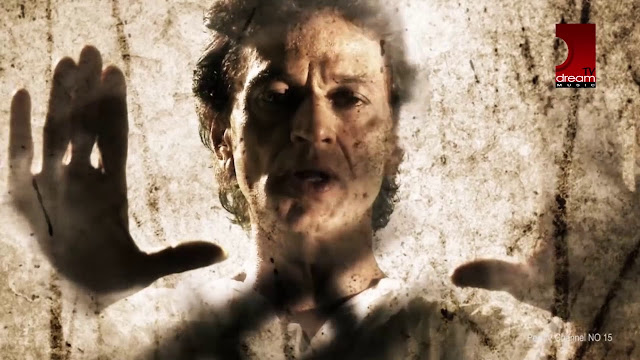Last Saturday night the students of Nelu Adikari and Kapila Poogalaarachchi put on an amazing show. It was the second edition of ‘Miyesi Lamaa Tharaka,’ and came five years after the maiden concert. [for an account of the first show read 'Miyesi Lama Tharaka: a "different reality" show']
It is not easy to manage over 300 children. There were more than a dozen items. The children sang and danced. They sang most of the songs but there were a few where well known artists accompanied them. For example the song “api sanasille…’ This was sung by Nelu’s brother Athula and Jananath Warakagoda, the renowned percussionist who has supported the excellent efforts of Nelu and Kapila to instill in children a love for all kinds of music.
‘Miyesi Lama Tharaka’ needs to be written about separately. This is about the man who wrote the lyrics and composed the melody of ‘api senasille.’
Bandula Nanayakkarawasam, one of the best and most productive of our contemporary lyricists who compered the show, had a story to tell.
‘This song was written by Senaka Batagoda. It was he who wrote “Api Kavuruda,” the song made popular by Sangeeth Wijesuriya and the band Wayo. Once I interviewed him for my programme “Rae Ira Paana.” We recorded him singing “Api Kavuruda.” As was the usual practice I made a CD and sent it to the radio station.
‘I rarely listen to my pre-recorded programmes. Senaka had listened. He called me. He was deeply distressed. He had a simple question: ඇයි මහත්තයෝ වතුර ඇදල ඇදල කලේ බින්දේ? (“Ai mahaththayo vathura adala adala kale binde?” or “Why did (you) break the earthenware pot after having drawn so much water?” [This is Senaka's original version]
‘Then he told me that the producer for reasons best known to him or her had replaced his version of the song with that of Wayo. I was as devastated.’
It’s not Wayo’s or Sangeeth’s fault of course. They acknowledge Batagoda in their videos. They have purchased copyrights as well. They have with visuals and other enhancement turned what some may call a ‘raw’ version into a hit. Producers know what’s best for the station, one could argue. However, at the end of the day, there’s an artist who created something special who is left feeling shorthanded. That’s not good.
The song, consequent to Bandula’s account, sounds different now. The title-question is even more philosophical now. The entire song is about people wondering who they are. Who are we? Who am I? These are the questions we don’t ask ourselves but seek an answer to nevertheless.
In a way, this is the question that Nelu and Kapila are seeking an answer to or rather want the children they teach to find an answer to. Parents send them to learn music, but they also learn history, heritage and culture. They learn something about humanity, about giving, sharing and the value of the collective. They acquire eyes to see the world and see through the world. They get exposed to roots, if that’s proxy for things like history and heritage, and they open their minds to the universe, if that’s proxy for things beautiful and sweet that are not necessarily wrought from our cultural soils.
So it’s about who we are and also about who we can become. It’s about what’s uniquely Sri Lankan and about the commonalities that pay little attention to national boundaries. It is about things that Senaka Batagoda sings about. Things that might at first cut appear to be casual observations about ordinary things but on closer examination are deeply philosophical.
Too often we re-define ourselves according to what we believe the world expects us to be. In the end we are not who we really our but someone else’s version inhabiting someone else’s version of our reality.
Lobo captures this in the song “Love me for what I am”:
I can't change any more
of what makes me be myself
And still have enough left
not to be somebody else
It’s not always a conscious decision. We are bombarded in multiple ways all the time with ‘be this!’ or ‘be that!’ We want inclusion, we don’t want to be left behind. So we go along and tell ourselves (by way of consolation) ‘this is what I want to do/be.’ We don’t often ask ourselves somewhere down the line, ‘who am I?’ or ‘what have I become?’
Senaka Batagoda felt short-changed. I like to think that he felt that cheated in the misrepresentation. He is not just the lyricist, but the lyrics. When he asks 'අපි කවුරුද?’ it’s a general question to a large collective he is a member of, but he clearly has a good idea of who he is. His songs are explorations of the dimensions of being and becoming.
I don’t know if he has had a conversation with Nelu and Kapila and I don’t know if the duo ever thought of that song seriously. But in this universe where the improbably announces presence, there’s a community that they are part of and that collective appears to be companions on a long journey. They walk to destinations that are probably clear to them. Their footprints are made for following.
Malinda Seneviratne is a freelance writer. malindasenevi@gmail.com.


4 comments:
I enjoyed reading this as I love the song 'Api Kawruda'. It was good to read your thoughts on the song. I wrote a blog post about 'Api Kawruda' where I embed Senaka Batagoda's original version. You can see it here if you're interested, http://aselaatukorala.blogspot.com/2017/03/api-kawruda-by-senaka-batagoda.html.
Really good article BUT Appreciate if you could translate this ...Think more people should read this...
i'll try to do that. :)
The blend of artistry, emotion, and cultural heritage in this article makes it both informative and heartfelt♥️
Post a Comment